Bad breath can be embarrassing. And when it happens often, bad breath can cause anxiety and deal a blow to your self-confidence.
Making sure you’re always practicing proper dental hygiene is the best way to combat bad breath, also known as halitosis. Brushing for 2 minutes twice a day, flossing, and using fluoride rinse can help you stay confident and keep bad breath away.
There are many foods and drinks that can cause bad breath, such as your daily cup of coffee or tea, or foods with garlic and onion. But beyond foods and drinks, there are other reasons for frequent bad breath that have to do with dental health.
Bad breath can be a sign of a deeper dental health issue like dry mouth, gum disease, or tooth decay. It’s important to talk to your dentist or orthodontist if you or your child experience bad breath frequently (especially if you’re following dental health best practices, and avoiding bad breath-causing foods and drinks).
Learn more about what causes bad breath and how to treat and prevent it with an effective dental health routine.
What Causes Bad Breath?
One of the most common causes of bad breath is poor oral hygiene. Every time you brush, you remove harmful bacteria that can turn into plaque on your teeth. And plaque can create less-than-fresh breath.
There are also many different foods, drinks, and health conditions that may be the cause of your bad breath. Learn more about common bad breath causes below, and what you can do about them.
1. Certain Foods
Pungent foods like garlic and onion are notorious for causing bad breath. The sulfur compounds found in these foods get trapped in your mouth, and eventually absorbed into your bloodstream. That’s you can smell the food long after you’ve eaten it!
This cause for bad breath is temporary and nothing to worry about. The downside is that you may still have bad breath after eating or drinking these foods and drinks — even after brushing your teeth!
Foods & Drinks That Can Cause Bad Breath
- Garlic and onion
- Dairy
- Canned tuna
- Horseradish
- Spicy foods
- Coffee and alcohol
How to Prevent It
If you’re worried about having bad breath before an interview or a date, avoid these foods and drinks altogether. If you do consume them, be sure to brush thoroughly and rinse with a fluoride mouthwash to get rid of the smell.
There are also foods you can eat that are especially healthy for your teeth.
2. Smoking and Tobacco Use
Smoking gives you bad breath, stains your teeth, and puts you at risk for other serious long-term health problems. Chewing tobacco irritates your gum tissues, can lead to gum recession and gum loss, as well as tooth decay and dry mouth.
Smoker’s breath is a specific form of bad breath — a stale scent that is created by the smoke still lingering in your throat and lungs. Chemical compounds also get left behind, mixing with your saliva and causing halitosis.
How to Prevent It
If you want to avoid smoker’s breath, the simplest and healthiest option is to quit smoking.
Be sure you brush your teeth regularly and thoroughly every day. If you aren’t able to brush, chew sugarless gum. Staying hydrated will also help control bad breath.
3. Tooth Decay and Dental Infections
Cavities and tooth decay can be the culprits behind routine bad breath. The bacteria in cavities can release odors, and food is more likely to get stuck in the damaged portion of your tooth, making the smell worse.
Other issues like dental abscesses or mouth sores can also cause bad breath. Treatment from your dentist is necessary for getting these problems cleared up.
How to Prevent It
When left untreated, tooth decay can be very serious. Fluoride is a strong defense against decay — use toothpaste, rinse with mouthwash, and drink water that has fluoride in it.
4. Tongue Coating
If you notice that you or your child have a white tongue along with bad breath, chances are tongue coating is the cause. Bacterias, food, and decomposing skin cells often get stuck on the back of the tongue. As you can imagine, this doesn’t smell good as it breaks down.
The white appearance is from all of the gunk trapped between the tiny bumps on your tongue, also known as papillae. Brushing your tongue every time you brush your teeth and rinsing with fluoride will help keep this under control.
How to Prevent It
If you already brush your tongue and still experience tongue coating, you can use a tongue scraper to remove the bacteria. If you don’t have a scraper, you can flip over a teaspoon and use that to scrape the back of your tongue gently.
Avoid using substances that may irritate your tongue, like acidic foods or tobacco products.
5. Dry Mouth
Dry mouth happens when there’s not enough saliva production. Saliva helps wash away food debris and bacteria in your mouth — neutralizing cavity-causing acids and keeping bad breath at bay.
At night, your saliva production slows down, which is why you may experience “morning breath.” This is normal, but bad breath caused by dry mouth is different. It isn’t always temporary and can be a chronic condition requiring diagnosis from your dentist.
How to Prevent It
Hydration is key to avoiding and treating dry mouth. But something you can do in between sips of water is chewing on sugarless gum. This will help stimulate the flow of saliva.
You can also put a humidifier in your bedroom at night so you have added moisture as you sleep.
6. Underlying Medical Conditions
If mouth infections, tooth decay, or conditions like gum disease or dry mouth have all been ruled out, your dentist may start to consider other areas of your body as being the cause of your bad breath. Problems such as sinus infections, gastric reflux, liver or kidney disease, and diabetes all can contribute to halitosis.
How to Prevent It
Talk to your orthodontist about your routine bad breath concerns. Symptoms like bad breath, receding or bleeding gums, swollen glands, or lesions can all be signs that something more serious is going on beyond your dental health.
When your dentist or orthodontist sees these things, they will recommend you talk with your primary doctor to see if there is further treatment needed.
How to Get Rid of Bad Breath
Everyone experiences bad breath from time to time. Outside of scheduling regular dental checkups, there are things you can do to help you keep it under control.
Practicing strong dental hygiene habits, taking care of your diet and exercise, and avoiding harmful substances are all ways to fix bad breath. By combining these tactics your breath will stay fresh for longer.
1. Brush Your Teeth After Every Meal
Always brush your teeth twice a day — this is the most important step in keeping up with a healthy dental routine.
But brushing after every meal combats bad breath and keeps your mouth free of lingering foods and plaques. As you do this, don’t forget to brush your tongue as well!
2. Floss Once a Day
There are a number of reasons why you should focus on healthy gums, and fresh breath is one of them.
It doesn’t matter the time of day you do it — find a few minutes where you can dedicate a little more time to your dental routine and work in flossing.
Waterpiks have become a popular tool to use in maintaining gum health. Like regular flossing, water flossing removes the food stuck between your teeth. Waterpiks are easy to use and typically more gentle on your gums, reducing any pain, discomfort, or bleeding.
3. Avoid Dry Mouth
Dry mouth can be caused by a host of different things, but much of it comes down to what you’re eating or drinking. Sipping water regularly helps keep your mouth moisturized. Caffeine can dry your mouth out, so limiting caffeinated coffee, tea, and sodas can help to keep you hydrated.
You can also try mouthwash designed specifically for dry mouth or over-the-counter saliva substitutes that contain xylitol.
4. Quit Using Tobacco Products
All types of tobacco usage impact your oral health, especially smoking and mouth tobacco.
Quitting immediately improves your health in every way and decreases your risk of gum disease, dry mouth, tooth discoloration, bad breath, and cancer.
5. Adjust Your Diet
Drinking plenty of water and maintaining a healthy diet directly can improve the health of your mouth. Less sugar reduces your risk of cavities and tooth decay while avoiding overly-acidic and salty foods can help with treating dry mouth.
Keeping up with a workout routine also helps with your oral health. You may be surprised to find how much a yoga session can help improve your smile!
Foods that Can Stain Your Teeth
Bad breath happens to everyone. Sometimes it’s simply from what you eat or drink, while other times it’s from not brushing or rinsing with fluoride thoroughly enough.
Regular checkups with your dentist give you the opportunity to detect any issues or problems as soon as you can. And taking the steps discussed in between your visits will ensure your smile stays in good shape and your breath remains fresh.
While some foods and drinks are notorious for causing bad breath, others are infamous for staining your teeth. This is yet another uncomfortable thing to deal with, but it’s something that can be turned around.
To make sure those pearly whites stay white, here’s our list of foods and drinks that can stain your teeth (and what to do after you eat and drink them).
Keep your smile bright by avoiding these 6 foods that stain teeth >

